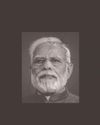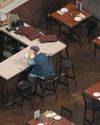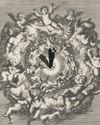
When someone becomes homeless, the instinct is to ask what tragedy befell them. What bad choices did they make with drugs or alcohol? What prevented them from getting a higher-paying job? Why did they have more children than they could afford? Why didn't they make rent? Identifying personal failures or specific tragedies helps those of us who have homes feel less precarious-if homelessness is about personal failure, it's easier to dismiss as something that couldn't happen to us, and harsh treatment is easier to rationalize toward those who experience it.
But when you zoom out, determining individualized explanations for America's homelessness crisis gets murky. Sure, individual choices play a role, but why are there so many more homeless people in California than Texas? Why are rates of homelessness so much higher in New York than West Virginia? To explain the interplay between structural and individual causes of homelessness, some who study this issue use the analogy of children playing musical chairs.
As the game begins, the first kid to become chairless has a sprained ankle. The next few kids are too anxious to play the game effectively. The next few are smaller than the big kids.
At the end, a fast, large, confident child sits grinning in the last available seat.
You can say that disability or lack of physical strength caused the individual kids to end up chairless. But in this scenario, chairlessness itself is an inevitability: The only reason anyone is without a chair is because there aren't enough of them.
This story is from the {{IssueName}} edition of {{MagazineName}}.
Start your 7-day Magzter GOLD free trial to access thousands of curated premium stories, and 9,000+ magazines and newspapers.
Already a subscriber ? Sign In
This story is from the {{IssueName}} edition of {{MagazineName}}.
Start your 7-day Magzter GOLD free trial to access thousands of curated premium stories, and 9,000+ magazines and newspapers.
Already a subscriber? Sign In

Apocalypse, Constantly
Humans love to imagine their own demise.

A Palestinian American Sex and the City
Betty Shamieh's debut novel is a rebellious rom-com.

Modi's Failure
Why India is losing faith in its strongman leader

The Anti-Social Century
Americans are now spending more time alone than ever. It's changing our personalities, our politics, and even our relationship to reality.

The Wild Charity of Saint Francis
The guide we need, now that kindness is countercultural

Where Han Kang's Nightmares Come From
In her novels, the South Korean Nobel laureate returns again and again to her countrys bloody past.

TROPHY HUNTERS
A GROUP OF CHILDHOOD FRIENDS PULLED OFF A STRING OF THE MOST AUDACIOUS SPORTS-MEMORABILIA HEISTS IN AMERICAN HISTORY. THEN THEY DID SOMETHING REALLY CRAZY.

THE NEW RASPUTINS
Anti-science mysticism is enabling autocracy around the globe.

ARMY OF GOD
AMERICAN CHRISTIANS ARE EMBRACING A CHARISMATIC MOVEMENT KNOWN AS THE NEW APOSTOLIC REFORMATION, WHICH SEEKS TO DESTROY THE SECULAR STATE. Now THEIR WAR BEGINS.

WHAT NOT TO WEAR
The false promise of seasonal-color analysis